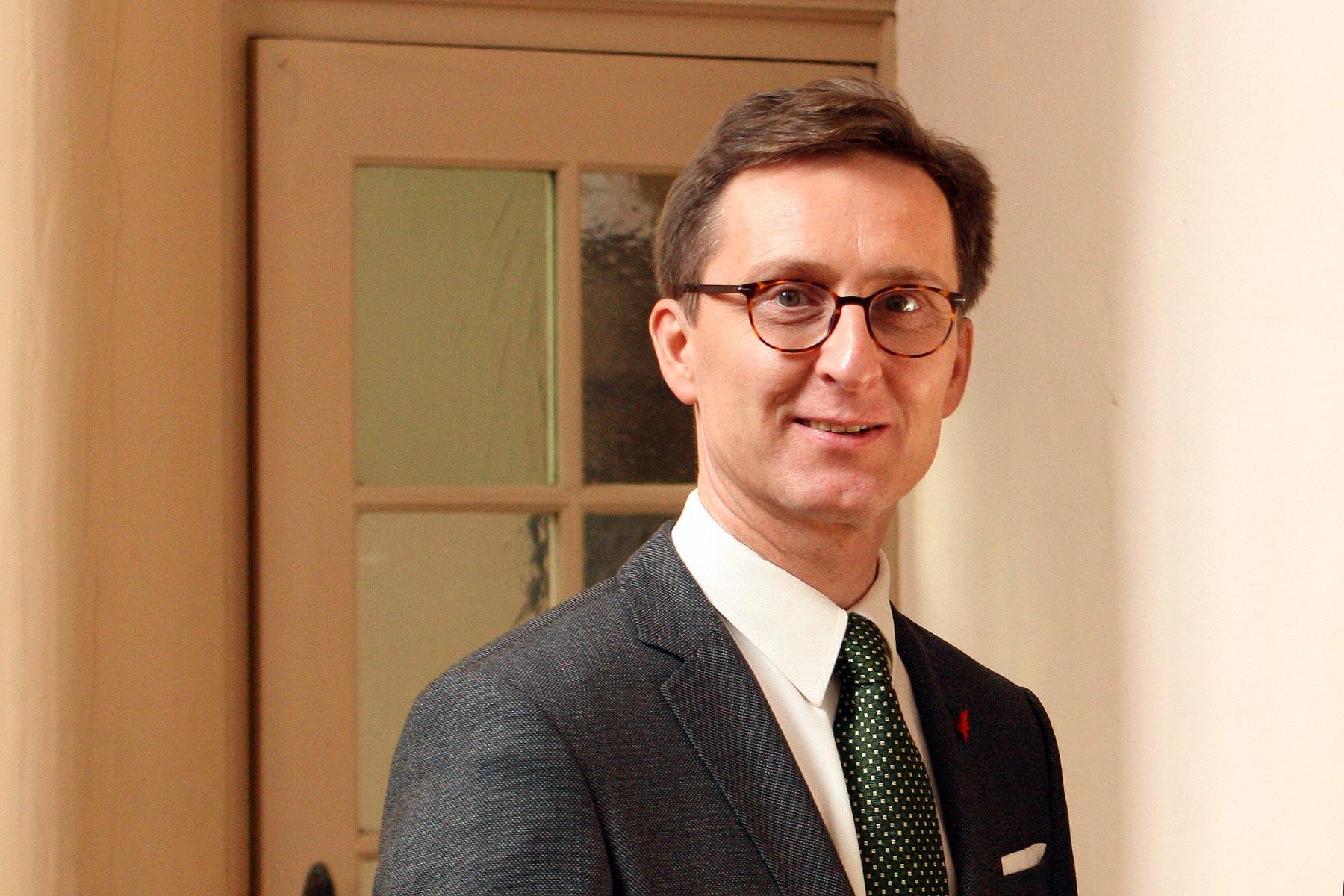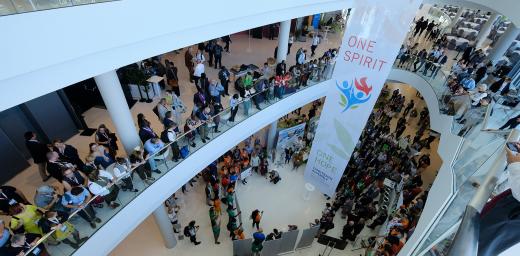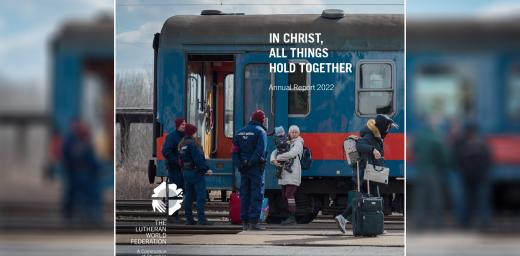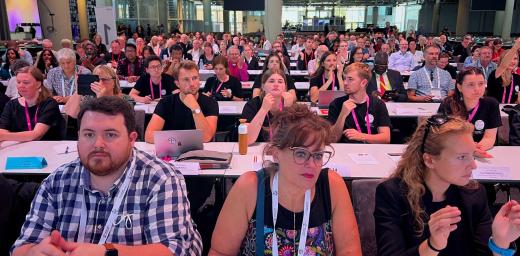Critically reflecting about Luther for the 21st century

Prof. Dr ĽubomÃr Batka was one of the two lecturers at the 19th International theological seminar held at the LWF Center Wittenberg. Photo: LWF/A. Weyermüller
Interview with Prof. Dr Ľubomír Batka
(LWI) – Prof. Dr Ľubomír Batka from Slovakia and Dr Hoyce Jacob Lyimo-Mbowe from Tanzania teamed up to lead the 19th International Seminar for theologians at the LWF Center in Wittenberg.
Batka is an ordained pastor of the Evangelical Church of the Augsburg Confession in the Slovak Republic and also a professor at the Faculty of Protestant Theology at Comenius University in Bratislava. He spoke with Lutheran World Information about the importance of these seminars and Luther’s theology for the 21st century. He also reflected on the present situation in his Slovak home country.
This is the second seminar that you have planned and co-led in the LWF Center in Wittenberg. What makes this two-week course so special?
The theological working sessions are based on texts written by Martin Luther. Reading these documents at the place they originated makes them more tangible, at some points, easier to understand. Our excursion program also plays a part. For example, after visiting the Wartburg a participant from India was moved to exclaim: “Now I finally understand the meaning of ‘A mighty fortress is our God’!” The third important building block of the seminars is the international composition of the whole group, with all our different perspectives, contexts and experiences. You don’t get anything comparable at any theological faculty in the world!
So you are very enthusiastic about this work?
Lutheran theology is global and at the same time contextual. That becomes very real during the seminar. It is very important to emphasize, however, that we don’t want to organize a Luther pilgrimage. My aim is to reflect critically on his work, to explore his concerns and his arguments, and to analyze their importance for our theological practice, in the respective contexts of our time. That means that we cannot take up everything Luther said in the way he did, nor should we. That is the difference between tradition and traditionalism.
It is very important to emphasize, however, that we don’t want to organize a Luther pilgrimage. My aim is to reflect critically on Luther’s work, to explore his concerns and his arguments, and to analyze their importance for our theological practice, in the respective contexts of our time.
The topic of the seminar was “Ethical and social elements of Martin Luther‘s theology”. Can you give an example of your approach?
We took up the two kingdoms doctrine and the order of “three estates”, on the basis of Luther‘s tract “To the Christian nobility” and his lecture on Genesis. Luther grapples intensively with the relationship between church and state in the late Middle Ages, critiquing, for example, the Pope’s claim to supremacy over secular rulers. Today we live in a world in which many places – particularly in eastern Europe – are strongly secularized and the churches are declining in importance. Yet especially in those countries there are politicians – not clergy – standing up and propagating what they call the “Christian West”. The churches have the big responsibility of responding to this form of populism which goes with closing ranks internally and towards the outside world. When we raise this issue on the basis of those two papers by Luther the result is an intensive discussion.
I live and work in Bratislava, the capital of Slovakia. In daily life I notice a strong Euroscepticism and in political debates the fronts have hardened. There are groups who fuel the fear of migrants and muslims. Furthermore, social minorities are excluded and stigmatized.
Precisely in such times we need good, thoughtful theological training, based on solid foundations in the church. Fundamentalist Biblicism does not contribute to a peaceful society.
Could you elaborate a little on the theological training in Slovakia?
In Slovakia there are seven theological faculties at state universities that are each allocated to a denomination. In my faculty the emphasis is on Lutheran and Reformation theology. At present we have about 90 students, the majority being women. They don’t only come from Slovakia; we also have Slovaks from Vojvodina in Serbia along with students from Romania and Slovenia.
The proportion of women and men serving as pastors in my church is about 50:50. My church was one of the first to ordain women, 70 years ago – back in 1949.
What I would like to convey to the next generation of pastors is that theological thinking thrives best when it is combined with an open and humble spirituality.
The 19th International Seminar for theologians took place at the LWF Center in Wittenberg, Germany, from 2 to 16 March. The theme of the seminar was “The Ethical und Social elements of Martin Luther´s Theology” and it was led by Prof. Dr Ľubomír Batka (Slovakia) and Dr. Hoyce Jacob Lyimo-Mbowe (Tanzania). 20 pastors from member churches of the Lutheran World Federation in 17 countries participated.





